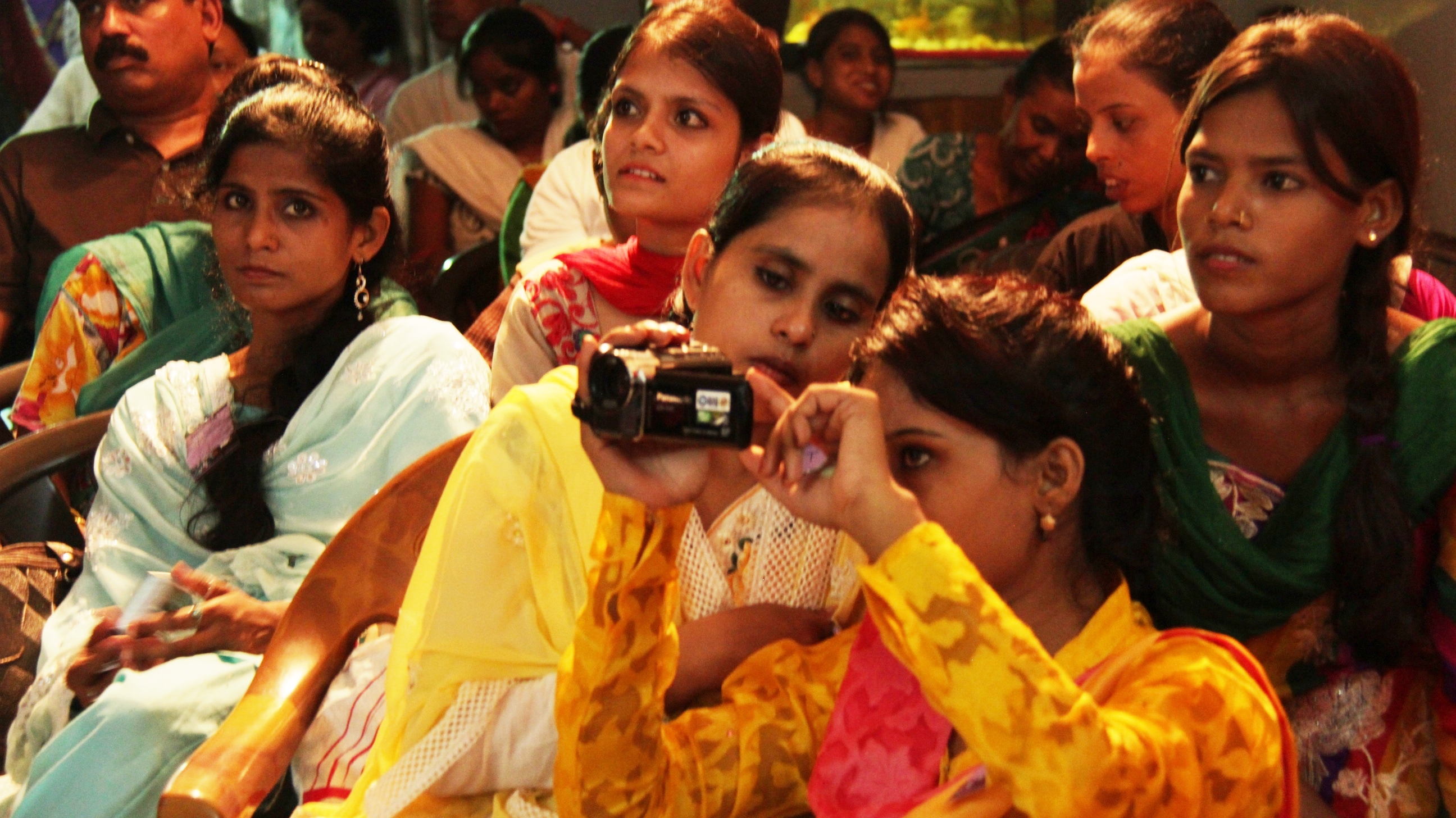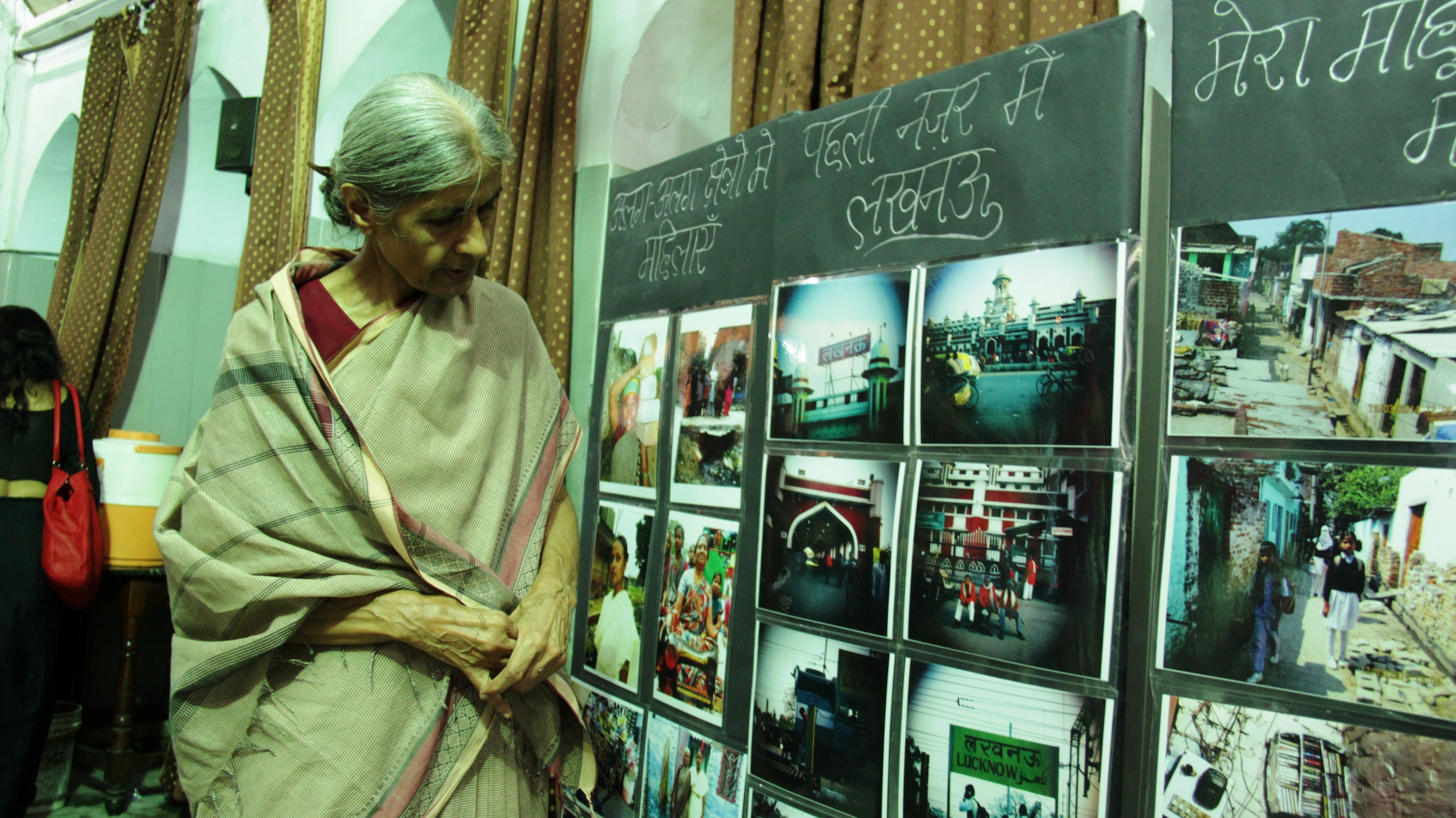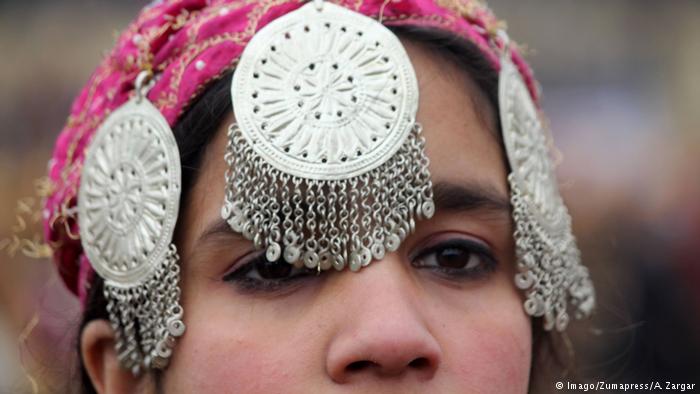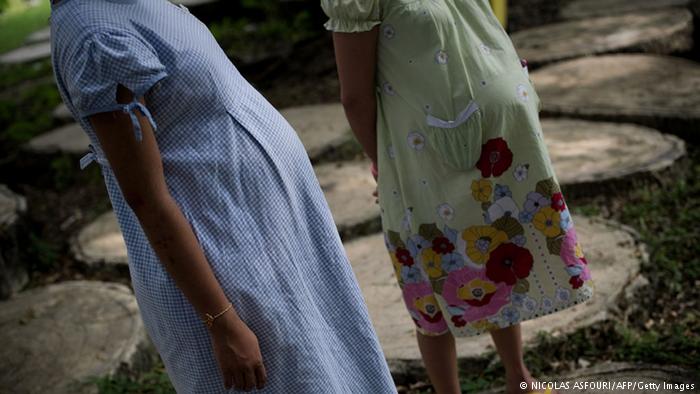Step By Step, These Muslim Women Break Stereotypes
Lucknow (Women’s Feature Service) – Nasreen, 32, does not have a second name. A few years ago she had no income either. All that this purdah-clad mother-of-four had was a little experience in stitching. Like countless other Muslim women from conservative homes in Lucknow, Uttar Pradesh, Nasreen, too, was forbidden to step out of her home. Despite living in crushing poverty she was not allowed to look for work to chip in and make things better. For a long time she struggled on but when it became a matter of life and death, Nasreen decided to take some tough decisions. “I decided to defy everyone in my family and grabbed the first job that was offered to me,” she says.
That opportunity was to make hand-crafted bags for Sanatkada, a local non-profit conceived as a centre for ethnic crafts and weaving. Since 2006, the organisation, founded by Madhavi Kuckreja, a development livelihood professional and human rights activist, has been working to revive, restore and showcase traditional crafts and textiles from around the country in Lucknow.
At first, Nasreen was satisfied with the work she was doing because the money she earned was good enough to feed her family. However, a chance enrolment in Sanatkada’s feminist leadership training programme transformed her entire outlook and opened many doors for her. It was in 2011 that Nasreen attended the training workshop with 20 other women in an effort to empower herself with life enhancing skills.
“Every year since 2010, we have been choosing around two dozen young women between 21 and 25 years of age for a course in information technology along with stints in filmmaking and photography. That most women in this programme are Muslim is simply because, by and large, they lack the opportunities due to the secluded lives they lead and are more deprived and needy than their counterparts from other communities,” states Hameeda Khatoon, the Coordinator of Sanatkada’s leadership and self-esteem workshop for girls.

Every year, several young Muslim women from lower middle class families in Lucknow, Uttar Pradesh, are learning to voice their thoughts and take a stand for themselves thanks to an innovative leadership initiative by a local non government organisation.
Sanatkada has been conducting trainings and workshops on gender and identity in partnership with Nirantar, a Delhi-based non government organisation that focuses on gender issues linked to caste, sexuality and religion. The two organisations collaborate at community level for research and advocacy and their work is strongly rooted in the lives of rural women.
Together with Nirantar’s Sahba Syed, Hameeda has been bringing a positive change to many lives through their interactive and lively training sessions where the use of information and communication technologies, including computer and Internet, videography and photography are the highlights. The idea is that eventually women like Nasreen will gain enough confidence to get on in life – without help or hindrance from their men.
Hameeda, 28, is a glowing example of an illiterate girl from a poor Muslim family who lives life on her own terms now. Before she had joined Sanatkada in 2008, she used to earn a living by picking flowers in the small town of Faizabad, some 300 kilometres away from the state capital, where her poverty stricken family, consisting of her widowed mother and many siblings, survived on hope and a prayer.
“Even as a youngster I was convinced that the key to all my problems would be a good education,” says Hameeda, whose siblings, including her brothers, have not attended more than three to four years of school. Hameeda is a university graduate and since 2010 has helped nearly 51 Muslim girls to benefit from Sanatkada’s leadership workshops. Out of these, about 28 girls have found work at call centres, at local NGOs and as teachers. “Those who are married and those who still wear the burqa do so mostly out of choice and not out of fear of men in the family or neighbours,” she points out with pride.
Like Hameeda, Nasreen, the sole bread earner of her nuclear family, has managed to break free from her shackles and become a calmer person. Moreover, she is studying for a graduate degree while her husband still remains unemployed.
Another product of Sanatkada’s leadership programme is Neha Khan, 23, the eldest child of a tailor with six daughters. Studying for a bachelor’s degree in commerce, Neha’s biggest fear at one time was that her father would not be able to pay for her education. It was only after she underwent the training that she has found enough confidence to travel in the city on her own and talk frankly to people when necessary.
Young Muslim women from lower middle class families in Lucknow have got a chance to break stereotypes and show the strengths and talents they possess. They are truly unique female role models, who are setting an example of reliance and excellence for everyone in their community.

Muslim women in Lucknow are introduced to information technology, filmmaking and photography as part of an innovative feminist leadership Programme.
Author: Mehru Jaffer
Editor: Marjory Linardy
This is a Women’s Feature Service Report.







